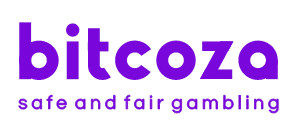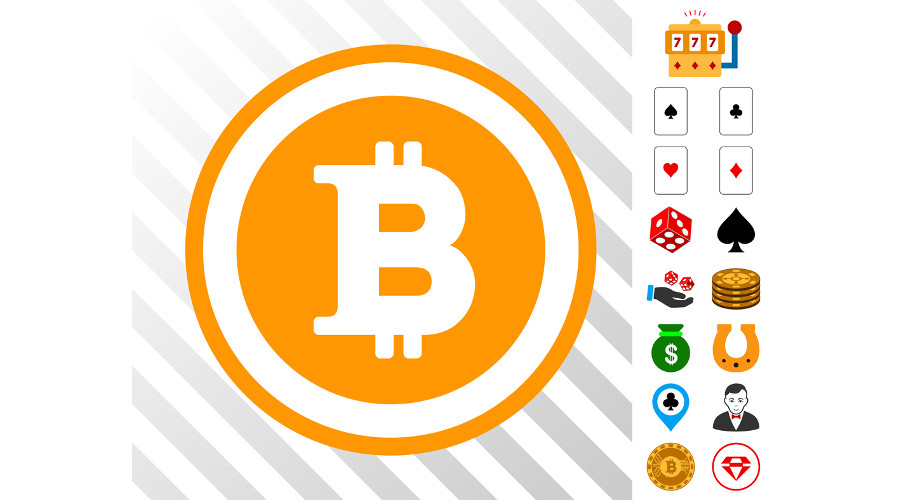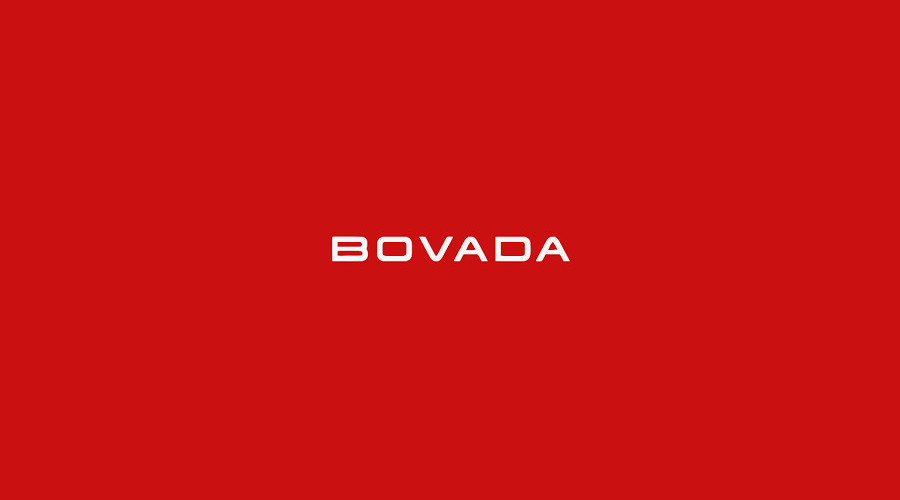In the digital age of online gambling, determining a casino’s legitimacy requires more than just a polished website and attractive bonuses. License checks serve as the foundational element that separates trustworthy operators from potential scams. While many players focus on game selection and promotional offers, the presence of a valid gaming license from respected regulatory authorities provides vital insight into an operator’s commitment to fair play, security, and responsible gaming practices. Understanding the key aspects of casino licensing not only protects players’ interests but additionally reveals the complex framework of regulations that legitimate gaming platforms must navigate to maintain their operational status.
Key Takeaways
- Verify the casino’s license number through official gaming authority databases like UK Gambling Commission or Malta Gaming Authority.
- Check for prominently displayed licensing information, security certificates, and RNG certification on the casino’s website footer.
- Confirm SSL encryption (padlock symbol) is present and valid to ensure secure data transmission and player protection.
- Look for mandatory responsible gaming tools, self-exclusion programs, and age verification systems required by legitimate licenses.
- Validate the casino’s compliance with AML protocols and KYC procedures through visible policies and verification requirements.
Understanding Online Casino Licenses
Clear display of licensing information on the casino’s website:
- Verifiable regulatory logos and documentation
- Detailed terms and conditions aligned with jurisdictional requirements
- Valid coverage for the player’s location
The licensing process requires:
- Submission of incorporation documents
- Establishment of a proper business structure
- Completion of thorough background checks
- Ongoing compliance with regulatory standards
Understanding these elements helps players navigate through the complexities of online gambling regulations and choose wisely about which platforms to trust with their gaming activities. Reputable operators invest in White Label solutions to ensure comprehensive licensing compliance and seamless payment integration.
Reputable Licensing Bodies
Several major gaming authorities around the world establish and enforce standards for online casino operations, with the Malta Gaming Authority, UK Gambling Commission, and Gibraltar Gambling Commission leading the industry. These regulatory bodies implement thorough compliance requirements that cover financial security, fair gaming practices, and player protection measures. Each authority maintains specific licensing protocols that online casinos must follow, including regular audits, software testing, and strict anti-money laundering procedures. The Isle of Man Gambling Supervision Commission is particularly notable for its emphasis on data protection standards when overseeing both online and land-based gambling operations.
Please Note
UK-licensed casinos cannot accept cryptocurrencies because the UK Gambling Commission (UKGC) strictly regulates payment methods to ensure transparency, prevent money laundering, and protect consumers. Per UKGC regulations, only fiat currencies processed through authorized and traceable payment channels are permitted. >> Read More
Major Gaming Authorities Worldwide
Understanding the global environment of online gambling regulation requires familiarity with major gaming authorities that serve as gatekeepers of industry legitimacy. The international gaming framework features several key regulators, with the UK Gambling Commission standing as a leading authority since 2007, overseeing more than 300 online casinos and setting stringent standards for the industry.
European authorities play vital roles in licensing challenges, with organizations like the Malta Gaming Authority and Gibraltar Regulatory Authority maintaining strict oversight of online gambling operations. The MGA has issued 348 gaming licenses to date, showcasing its significant presence in the industry. These bodies enforce extensive regulations covering anti-money laundering, player protection, and responsible gambling practices.
Key aspects of major gaming authorities include:
- The UK Gambling Commission’s power to impose fines up to 13 million pounds, demonstrating serious regulatory enforcement
- Malta Gaming Authority’s reputation for balanced regulation, making it a preferred choice for European operators
- PAGCOR’s unique position in Asia, offering extensive tax benefits while maintaining strict operational standards
Asian and American regulators, including PAGCOR and the Panama Gaming Control Board, provide additional oversight options, each with distinct requirements and jurisdictional advantages for operators seeking global reach.
Strict Compliance Standards Required
Reputable licensing bodies’ compliance standards represent the cornerstone of legitimate online gambling operations, encompassing thorough requirements across multiple regulatory dimensions. Operators face significant compliance challenges in meeting strict protocols for financial stability, customer verification, and responsible gaming practices.
| Compliance Area | Primary Requirements | Enforcement Mechanisms |
|---|---|---|
| Financial Security | Proof of funds, Regular audits | Independent assessments |
| Customer Protection | KYC, Age verification | System monitoring |
| Anti-Money Laundering | CDD checks, SAR reporting | FINTRAC oversight |
| Responsible Gaming | Self-exclusion programs, Problem gambling resources | Regular audits |
To maintain valid licensing, operators must demonstrate ongoing adherence to extensive regulatory frameworks established by authorities like AGCO and iGO. These enforcement mechanisms guarantee strict compliance with all operational standards. Operators must implement robust systems for customer due diligence, transaction monitoring, and suspicious activity reporting. The AGCO’s oversight role ensures comprehensive monitoring of both land-based and online gambling operators within Ontario’s jurisdiction.
The licensing process requires thorough documentation, including detailed financial records, AML policies, and responsible gambling procedures. Regular assessments verify continued compliance with these standards, while background checks guarantee operator integrity. Non-compliance results in immediate regulatory action, protecting market integrity and player interests.
Key Elements of Valid Licenses
Regulatory authentication methods form the cornerstone of verifying an online casino’s legitimate licensing status through systematic verification processes. Official databases maintained by licensing authorities provide a reliable means to confirm the authenticity of casino licenses and operational permissions. These databases typically include crucial information such as license numbers, issue dates, and current status, allowing players and regulators to validate a casino’s credentials instantly. A key focus of licensing bodies is monitoring casinos’ adherence to strict AML/KYC policies to prevent financial crimes.
Regulatory Authentication Methods
A valid online casino license serves as the cornerstone of legitimate gambling operations, incorporating several critical authentication elements that verify its authenticity. The regulatory frameworks established by authorities like the MGA and UKGC require specific authentication protocols to guarantee compliance and player protection. Implementing effective data localization laws helps casinos maintain regional compliance while protecting user information.
Legitimate online casinos must display their licensing information transparently, typically in prominent website locations. These authentication methods involve multiple layers of verification, including official documentation and direct links to regulatory bodies’ databases.
Key authentication methods include:
- Two-factor authentication systems that verify user identity and prevent unauthorized access to gaming accounts
- Implementation of certified Random Number Generators (RNGs) that undergo regular testing by independent authorities
- Continuous compliance monitoring through automated systems that track regulatory requirements across jurisdictions
The authentication process extends to Anti-Money Laundering (AML) measures, requiring casinos to maintain thorough screening procedures. These include checking users against global watchlists and conducting ongoing Know Your Customer (KYC) verifications. Players can verify a casino’s legitimacy by checking for these authentication elements and confirming the license’s validity through official regulatory channels.
Verification Through Official Databases
Every legitimate online casino undergoes rigorous verification through official regulatory databases, which serve as the definitive source for license validation and compliance tracking. These databases maintain extensive records of licensing information, financial documentation, and operational compliance across multiple jurisdictions. Tax rates reaching 15 percent maximum represent the industry’s highest regulatory standards and contribute to maintaining robust verification systems.
Database integrity is maintained through systematic cross-referencing of vital information, including:
- Identity verification against government-issued documents
- Financial records and transaction monitoring
- Criminal background checks and exclusion lists
- RNG certifications and software testing results
- Business documentation and utility verification
Compliance verification involves continuous monitoring through:
- Regular audits by regulatory bodies
- Tracking of infractions and penalties
- Documentation of fee payments and renewals
- Inspection reports and compliance records
- Cross-jurisdictional regulatory checks
Major regulatory bodies, such as the UK Gambling Commission and the National Gambling Board of South Africa, maintain these databases to guarantee transparency and accountability. The verification process includes thorough checks of financial qualifications, software reliability, and operational standards. Annual fees, which can reach $95,000 in jurisdictions like Alderney, contribute to maintaining these extensive verification systems.
Verification Steps for Casino Legitimacy
Determining the legitimacy of an online casino requires a systematic approach focused on key verification steps. Understanding common verification challenges and licensing misconceptions helps players make knowledgeable choices about where to place their bets.
An extensive verification process examines multiple aspects of an online casino’s operations, from licensing credentials to security measures. Reputable gaming authorities like the Malta Gaming Authority and Kahnawake Gaming Commission provide crucial oversight and regulation. The casino must demonstrate compliance with strict security protocols and maintain current certifications. Submitting copies of government-issued IDs is a standard requirement for validating player identities.
Key verification steps include:
- Confirm the validity of the casino’s license through official gaming authority databases
- Verify the implementation of secure encryption technology and data protection measures
- Check the casino’s commitment to KYC procedures and AML compliance
Players should verify their chosen casino prominently displays valid licenses and certifications on their website. Furthermore, the presence of recognized payment processors and robust security measures indicates legitimate operations. Regular monitoring of transactions and strict identity verification procedures further demonstrate an online casino’s commitment to maintaining legitimate gaming standards.
Red Flags in License Checks
While verification steps establish a foundation for evaluating online casino legitimacy, understanding specific warning signs during license checks helps players identify potentially fraudulent operations. Several critical red flags emerge during the license verification process that warrant immediate attention.
Primary warning signs include the absence of visible licensing information or regulatory details from recognized authorities like the UKGC, MGA, or GRA. Casinos displaying licenses from obscure jurisdictions or making unverifiable licensing claims require careful scrutiny. The lack of SSL encryption protocols on the website suggests inadequate security measures and potential risks to player data. Compliance indicators should include current, valid license numbers and transparent regulatory information.
Additional red flags emerge when casinos:
- Display inconsistent or outdated licensing information
- Lack verifiable contact information for regulatory bodies
- Present multiple licenses without proper documentation
- Show no evidence of regular audits by independent authorities
- Fail to provide game fairness certifications
These warning signs often indicate deeper issues, including potential illegal activities, inadequate player protection, and unreliable gambling practices. Players should avoid casinos exhibiting these red flags to protect their interests and maintain legal compliance in their gaming activities.
Security Features of Licensed Casinos
Licensed online casinos employ multiple layers of advanced security features to protect their players and maintain operational integrity. These platforms implement robust encryption standards like SSL and TLS protocols to safeguard data transmission between players and servers. The extensive security infrastructure includes advanced fraud prevention systems, secure payment gateways, and strict identity verification processes. Casinos must maintain compliance with strict regulatory standards by obtaining licenses from recognized authorities like the UK Gambling Commission.
Modern licensed casinos prioritize player protection through:
- Multi-factor authentication and device fingerprinting technology to prevent unauthorized access and identify suspicious login attempts
- Continuous monitoring systems powered by AI and analytics to detect and respond to potential security threats in real-time
- Regular security audits and compliance checks to guarantee adherence to international data protection regulations
The implementation of Know Your Customer (KYC) protocols and transaction monitoring systems helps prevent identity theft and financial fraud. Licensed operators work closely with trusted financial institutions to maintain secure payment channels and detect suspicious activities. These security measures are regularly updated and tested to address emerging cyber threats, allowing players to focus on gaming without concerns about data safety or financial security.
Regulatory Requirements and Compliance
To maintain operational legitimacy in the online gambling industry, casinos must adhere to a thorough framework of regulatory requirements and compliance standards. This includes obtaining licenses from recognized authorities like MGA, UKGC, and GRA, who enforce strict operational guidelines through regular audits and monitoring. Game developers must ensure their platforms include responsible gambling tools to protect players and meet regulatory requirements.
Key regulatory enforcement measures focus on three primary areas: anti-money laundering (AML) protocols, data protection, and responsible advertising. Online casinos must implement extensive KYC procedures and transaction monitoring systems to prevent financial crimes.
| Compliance Area | Key Requirements | Monitoring Body |
|---|---|---|
| AML Protocols | KYC Verification, Transaction Monitoring | Financial Regulators |
| Data Protection | GDPR Compliance, SSL Encryption | Privacy Commissioners |
| Marketing Rules | Transparent Advertising, Age Restrictions | Gaming Authorities |
Compliance challenges include maintaining current with evolving regulations across different jurisdictions. Casinos must continuously update their security systems, data protection measures, and operational procedures to meet regulatory standards. Regular audits verify adherence to these requirements, while public display of valid licenses provides transparency for players seeking legitimate gaming platforms.
Player Protection through Licensing
Robust player protection forms the cornerstone of legitimate online casino licensing, with regulatory authorities implementing extensive safeguards for user security and fair gaming practices. Leading licensing bodies enforce strict standards through regular audits, security checks, and compliance monitoring to guarantee player safety. Gaming transparency remains paramount, with authorities requiring clear documentation of game mechanics and fair play systems. Respected organizations like the Malta Gaming Authority oversee these operations.
The implementation of thorough security measures demonstrates a casino’s commitment to protecting players. These include SSL encryption, secure payment gateways, and mandatory KYC procedures for identity verification. Licensing authorities additionally mandate responsible gaming tools, allowing players to maintain control over their gaming activities.
Key aspects of player protection through licensing include:
- Mandatory implementation of self-exclusion programs and deposit limits to prevent problem gambling
- Regular security audits and encryption protocols to safeguard personal and financial information
- Strict verification processes to prevent underage gambling and guarantee compliance with anti-money laundering regulations
These measures create a secure gaming environment where players can enjoy their entertainment with confidence in the casino’s legitimacy and commitment to protection standards.
Benefits of Licensed Gaming Platforms
Players who choose licensed gaming platforms gain access to an extensive suite of benefits that extend far beyond basic entertainment value. These platforms establish player trust through thorough security measures, including SSL encryption and rigorous data protection policies that safeguard personal information and financial transactions. Ontario’s regulated since 2022 online casino market ensures all licensed operators meet strict provincial standards.
Gaming integrity is maintained through sophisticated Random Number Generators and regular third-party audits, ensuring fair gameplay for all participants. Licensed platforms implement anti-cheating software and maintain transparent gaming practices, providing players with clear rules and verifiable outcomes.
The benefits extend to responsible gambling features, allowing players to maintain control through:
- Self-exclusion programs
- Customizable deposit limits
- Access to professional support services
- Educational resources for responsible gaming
Additionally, licensed gaming platforms contribute significantly to the broader community through:
- Generation of tax revenue for public services
- Creation of employment opportunities
- Economic stimulation through licensing fees
- Improvement of the province’s regulatory reputation
These regulated platforms create a secure gaming environment while ensuring that gaming activities contribute positively to society through economic and social benefits.



